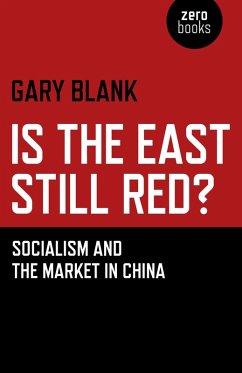Does China represent a non-capitalist alternative to neoliberal development models? Commentators on the left have offered sharply divergent assessments over the last two decades. A few still cling the old dream of market socialism, twinning efficiency with social justice. For most, however, China is proof that market reforms invariably yield dispossession, inequality, and capitalist restoration. Is the East Still Red? argues that both interpretations are wrong and exhibit a common failure to distinguish between market mechanisms and capitalist imperatives. Gary Blank situates the Chinese experience within broader Marxist debates on socio-historical transitions and primitive accumulation, highlighting the need to conceptualize capitalism as a unique system in which producers and appropriators depend on the market for their reproduction. Despite years of marketization, the mandarins in Beijing have not yet imposed full market dependence in industry and agriculture. He shows how the resistance of workers and peasants, the imperatives of party-state legitimacy, and the reproductive strategies of individual Communist officials and managers all act to perpetuate central aspects of a bureaucratic-collectivist system, in which direct producers and bureaucrats are effectively merged with the means of production. The People's Republic may be a non-capitalist market alternative, albeit one that is hardly edifying for socialists.
Dieser Download kann aus rechtlichen Gründen nur mit Rechnungsadresse in A, B, BG, CY, CZ, D, DK, EW, E, FIN, F, GR, HR, H, IRL, I, LT, L, LR, M, NL, PL, P, R, S, SLO, SK ausgeliefert werden.









